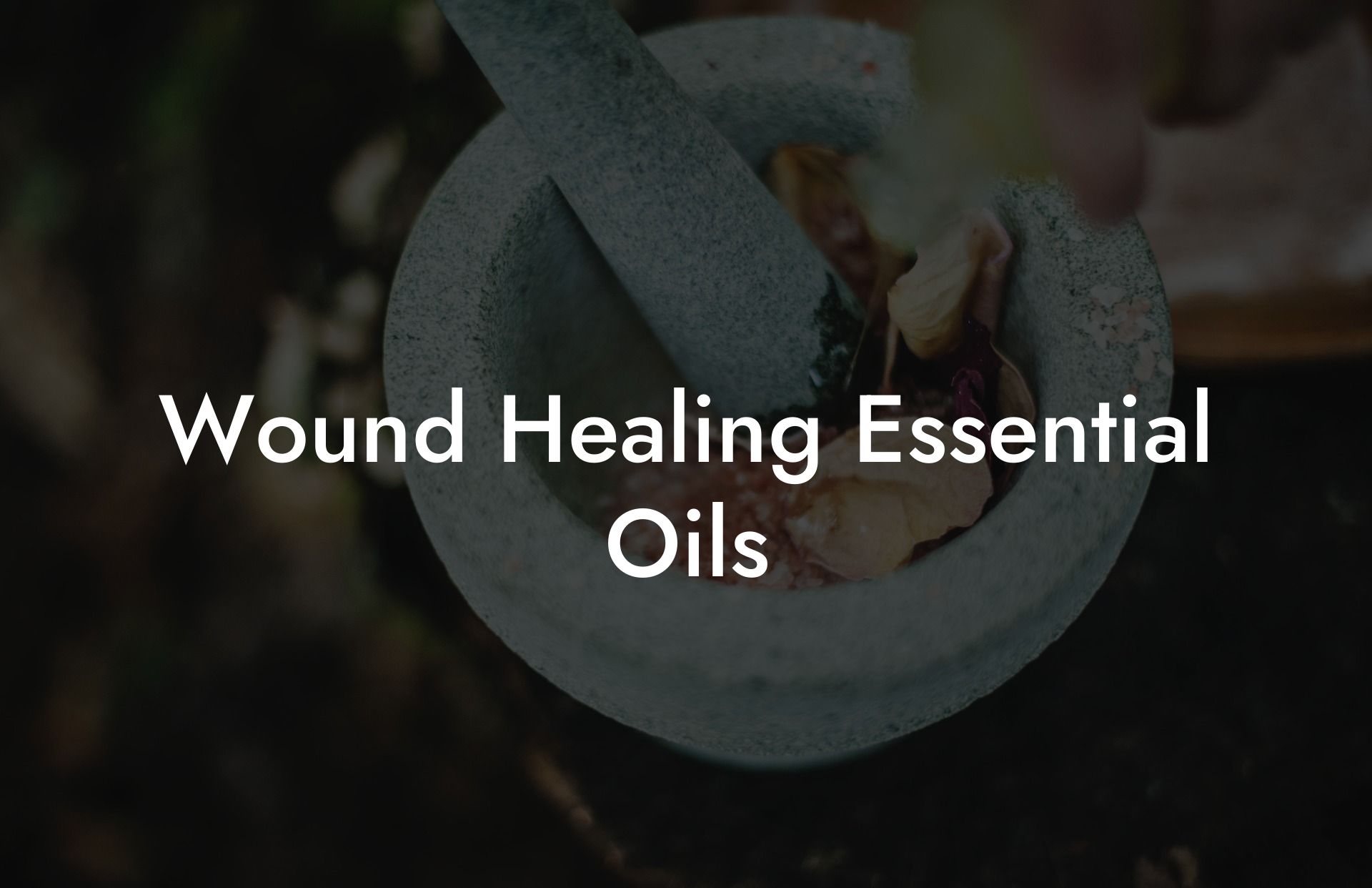Discover the power of essential oils and their remarkable ability to promote wound healing. In this comprehensive guide, we’ll explore the world of wound healing essential oils and how these natural remedies can help speed up the healing process, reduce inflammation, and prevent infection.
Table of Contents
Understanding Wound Healing Essential Oils
The Science Behind Essential Oils and Wound Healing
Essential oils, which are concentrated extracts derived from plants, have been used for centuries to promote healing and improve overall wellbeing. Wound healing essential oils offer an array of benefits, such as antimicrobial, anti-inflammatory, and analgesic properties, which aid in the healing process of various types of wounds.
Top Wound Healing Essential Oils
- Lavender Oil: Known for its soothing and calming effects, lavender oil also contains antimicrobial properties that help reduce inflammation and elevate the rate of wound healing.
- Tea Tree Oil: With its powerful antiseptic properties, tea tree oil is extremely effective in cleansing wounds and preventing infection, promoting faster wound healing.
- Frankincense Oil: This ancient oil not only aids in reducing inflammation and improving circulation, but it also helps to regenerate skin cells, accelerating the wound healing process.
- Helichrysum Oil: Famed for its anti-inflammatory, antifungal, and antimicrobial properties, helichrysum oil works efficiently in reducing inflammation and speeding up the healing process.
- German Chamomile Oil: Celebrated for its soothing and calming effects, German chamomile oil also possesses anti-inflammatory and antiseptic properties that can promote faster wound healing.
Using Wound Healing Essential Oils
Topical Application
Before applying essential oils to the skin, they should be diluted with a carrier oil such as coconut, almond, or jojoba oil. This not only prevents skin irritation, but it also improves the oil’s absorption into the skin. For optimal results, mix 1-2 drops of the essential oil with a carrier oil and gently apply it to the affected area regularly.
Aromatherapy
Inhaling the aroma of wound healing essential oils can also help support the healing process while promoting relaxation. Add a few drops of essential oil to an aromatherapy diffuser or a warm, damp cloth, and inhale the soothing vapors for maximum benefits.
Baths and Compresses
Adding essential oils to a warm bath or in a compress can encourage healing, soothe pain, and lessen inflammation. Simply add a few drops of the chosen essential oil to warm water and soak the wounded area or create a compress by soaking a clean cloth in the mixture and applying it to the wound.
Wound Healing Essential Oils Example:
Imagine you’ve scraped your knee while hiking. To speed up the healing process and minimize the risk of infection, you reach for a bottle of lavender essential oil. Mixing a few drops with a carrier oil like coconut oil, you gently apply the diluted oil to the wound. The soothing scent of lavender helps to calm your nerves, while its antimicrobial properties assist in reducing inflammation and promoting faster healing.
Embrace the healing power of wound healing essential oils and incorporate them into your self-care routine. Not only will you be supporting your body’s natural healing process, but you’ll also benefit from the soothing and calming properties of these potent plant remedies. Share this article with friends and family to spread awareness about the benefits of essential oils for wound care. To learn more about essential oils and their numerous applications, explore Oshu Oils’ comprehensive guides and discover the perfect oil to complement your daily routine. Begin your journey towards better health with our expertly formulated range of Oshu Oils essential oils.





















